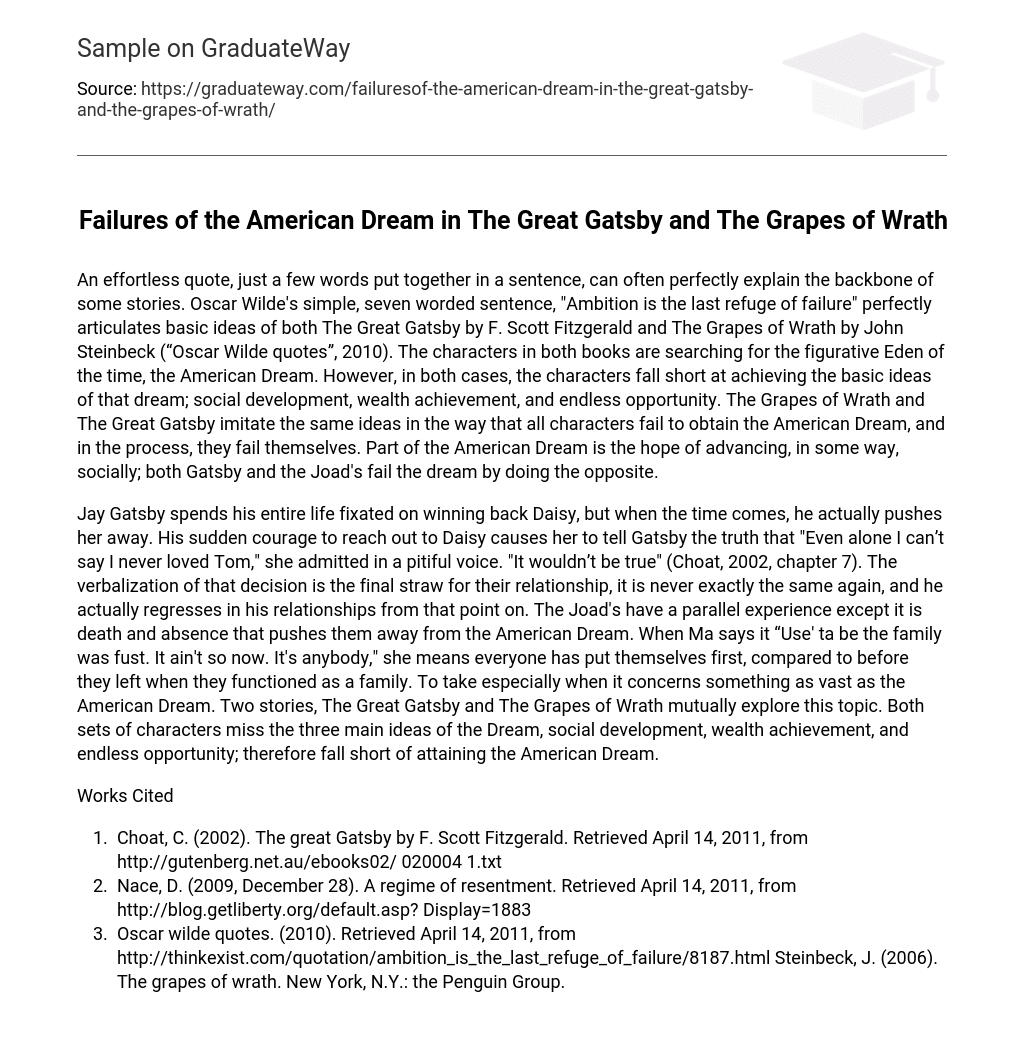The Great Gatsby by F. Scott Fitzgerald and The Grapes of Wrath by John Steinbeck both depict the same message expressed in Oscar Wilde’s quote: “Ambition is the last refuge of failure” (“Oscar Wilde quotes”, 2010). In these novels, the characters strive for the American Dream but ultimately fall short, unable to achieve social progress, wealth accumulation, or endless opportunities. Consequently, they not only fail to obtain the American Dream but also fail themselves. Both Gatsby and the Joads defy the hope of societal advancement, thus contradicting the dream’s ideals.
Jay Gatsby devotes his entire life to winning back Daisy, but when the opportunity arises, he unintentionally pushes her away. His newfound courage to reach out to Daisy leads her to confess in a pitiful voice, “Even alone I can’t say that I never loved Tom. It wouldn’t be true” (Choat, 2002, chapter 7). This confession marks the breaking point in their relationship and causes it to never be the same again. From that moment on, Gatsby’s relationships regress.
Similarly, the Joad family experiences a parallel change as death and absence drive them away from pursuing the American Dream. Ma expresses this shift when she says, “Use’ ta be the family was fust. It ain’t so now. It’s anybody.” This implies that everyone has become self-oriented compared to when they were a united family before embarking on their journey. This is especially significant considering something as monumental as the American Dream.
Both The Great Gatsby and The Grapes of Wrath explore this theme. In both stories, the characters fail to grasp three core aspects of the Dream: social advancement, financial success, and limitless opportunities. Consequently, they fall short of achieving the American Dream.
Works Cited
- Choat, C. (2002). The great Gatsby by F. Scott Fitzgerald. Retrieved April 14, 2011, from http://gutenberg.net.au/ebooks02/ 020004 1.txt
- Nace, D. (2009, December 28). A regime of resentment. Retrieved April 14, 2011, from http://blog.getliberty.org/default.asp? Display=1883
- Oscar wilde quotes. (2010). Retrieved April 14, 2011, from http://thinkexist.com/quotation/ambition_is_the_last_refuge_of_failure/8187.html Steinbeck, J. (2006). The grapes of wrath. New York, N.Y.: the Penguin Group.





